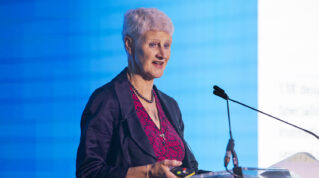A coroner has warned that schools and colleges are delaying applications for education, health and care needs assessments because they have misunderstood the rules – increasing the risk of suicides.
The warning followed an inquest into the death of Jennifer Chalkley, who was 17 when she took her own life in 2021.
The inquest found her death was contributed to by an inadequate education health and care plan, failings in children’s mental health services and systemic multi-agency failures.
It also heard that Howard of Effingham School, in Surrey, where Jennifer was enrolled until 2020, delayed making an application for an EHC needs assessment after misunderstanding the rules.
The school’s SENCo told the inquest: “We are required to prove that we have put up to £6,000 of support in place before applying. This is guidance that we are given by Surrey.”
Senior coroner Richard Travers said evidence “suggested that this belief was widespread amongst schools, colleges and others, both in and beyond Surrey”.
But he said the SEND code of practice actually states youngsters with special needs “must be identified as soon as possible so that their needs can be assessed and met as soon as possible”.
Travers made clear that the school’s errors regarding the financial rules were a “genuine misunderstanding” and that the school had tried to support Jennifer within the system as they understood it.
At the inquest hearing the evidence showed that in September 2021, shortly before her death, Jennifer started a course at a new college but staff there did not receive her safeguarding file from her previous educational establishment. As a result the college’s “ability to recognise and manage Jennifer’s needs and risks, including her risk of suicide, was undermined”.
In a prevention of future deaths (PFD) report, published Monday, Travers warned: “I am concerned that the misunderstanding by schools and colleges is delaying or preventing applications for statutory assessments being made in some cases and thereby acting as a barrier to ensuring all children and young people with additional needs are receiving effective support as soon as possible.
“I am concerned that this creates or increases the risk of avoidable suicidality developing.”
Surrey County Council has updated its guidance to make clear schools do not have to spend £6,000 before applying for an EHC needs assessment.
But the PFD report said evidence received from a college in the county showed the misunderstanding still persists.
Travers wrote that the error likely stems from England’s school and early years finance regulations, which set the high-needs-costs threshold at £6,000.
He said: “I am concerned the misconception persists nationally and that, for the reasons set out above, action is needed to ensure all schools and colleges understand, clearly, that spending an additional £6,000 on a child is not a pre-requisite to applying for a statutory assessment.”
Margaret Mulholland, SEND and inclusion specialist at the Association of School and College Leaders, expressed concern about the “notional” SEN budget and believed it “could be a source of confusion”.
She said some councils “may ask for proof of spending” over a certain threshold but this is not a legal requirement.
“There desperately needs to be more investment in the SEND system to ensure decisions are being based on the needs of children rather than available funding,” she added.
The Howard Partnership Trust, which runs Howard of Effingham School, did not respond to a request for comment.
The Department for Education and Surrey County Council are required to respond to the PFD report by December 9. Both were approached for comment.
Samaritans are available 365 days a year. You can reach them on free-call number 116 123, email them at jo@samaritans.org or visit www.samaritans.org to find your nearest branch.















Your thoughts